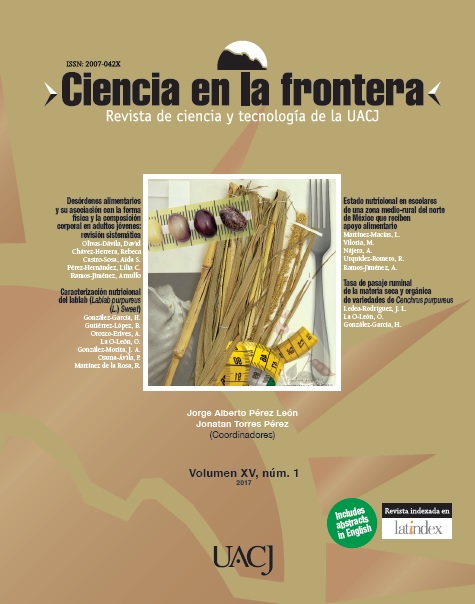Nutritional status in schoolchildren in a rural area of northern Mexico who receive food support
The purpose was to study the impact of an annual food support program on the nutritional status of schoolchildren. Two hundred and forty-six children enrolled in elementary schools with very low economic resources in a mid-rural area of northern Mexico participated; schools with kitchens where foods...
Saved in:
| Main Authors: | , , , , |
|---|---|
| Format: | Artículo |
| Language: | spa |
| Published: |
Ciencia en la frontera
2018
|
| Subjects: | |
| Online Access: | http://erevistas.uacj.mx/ojs/index.php/cienciafrontera/article/view/2489 |
| Tags: |
Add Tag
No Tags, Be the first to tag this record!
|
| Summary: | The purpose was to study the impact of an annual food support program on the nutritional status of schoolchildren. Two hundred and forty-six children enrolled in elementary schools with very low economic resources in a mid-rural area of northern Mexico participated; schools with kitchens where foods are prepared for sale among schoolchildren. In one school the sale of the breakfasts was symbolic (two pesos or none, financed school) in the others at low cost (6-15 pesos, self-financed schools). School menus, weight, height, body mass index (BMI) and age of the children were recorded. There is more proportion of children with malnutrition, overweight and obesity in self-financing schools. Children in funded schools are on average within their ideal weight, height and BMI for their age, while those in self-funded schools are within 0.40 standard deviations (SD) of their ideal nutritional status. Children in nutritionally funded schools had lower rates of malnutrition than children in self-funded schools. |
|---|---|
| ISSN: | 2007-042X |
